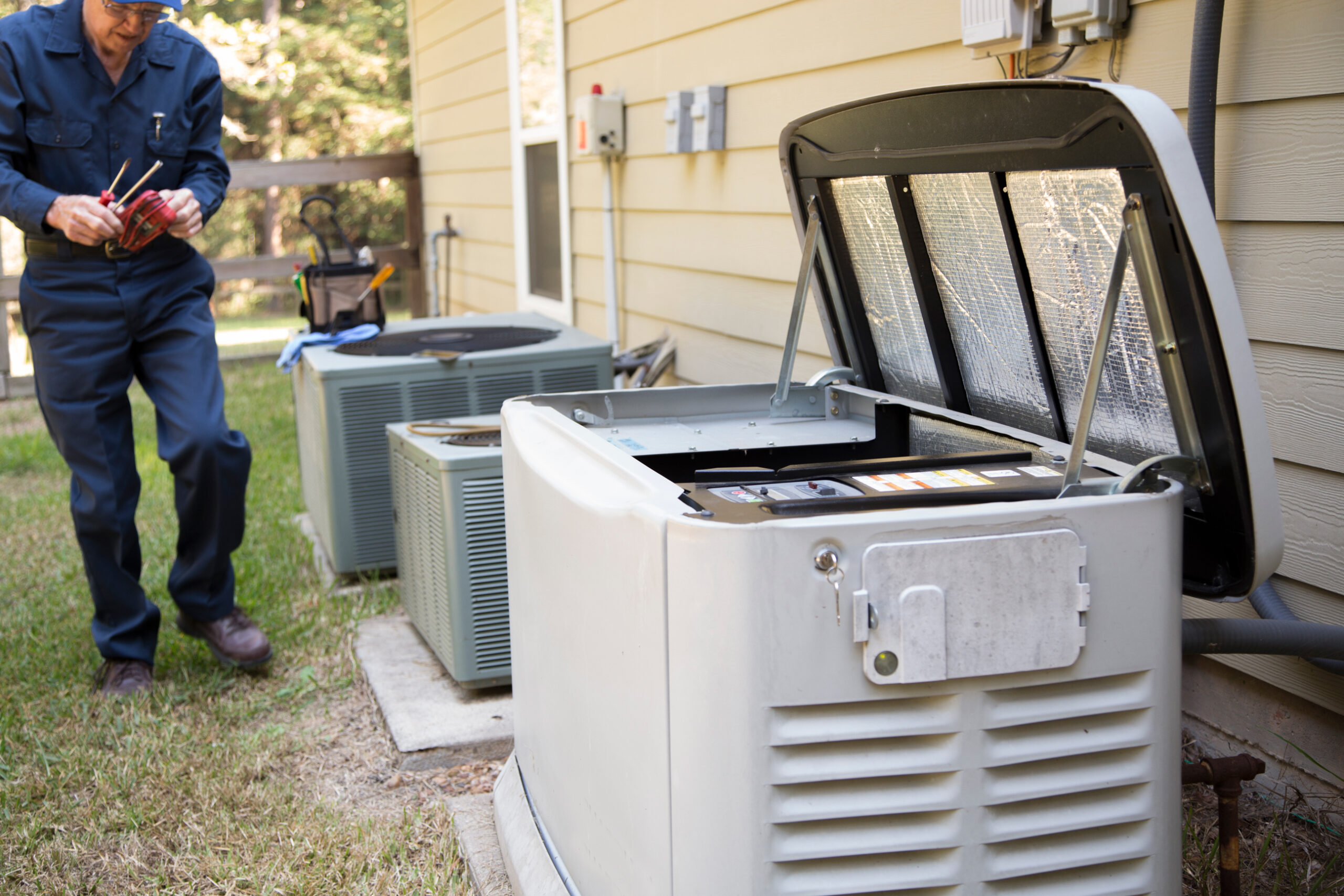Brought to you by HBA Gold Industry Partner, Louisiana Generators
If you’ve lived in Louisiana for a reasonable amount of time, you’ve probably seen your fair share of extreme weather. Hurricanes and tropical storms are unavoidable for Southerners. However, thanks to generators, power outages are not. Proper generator maintenance prepares you for anything Louisiana weather might throw your way.
With regular upkeep, a generator can last 10,000 – 20,000 hours or 20 years. The frequency of maintenance depends on how often you use it. Generator maintenance schedules can be broken into daily, weekly, monthly, and annual tasks.
Daily Maintenance (each use)
Conduct these inspections with each use to ensure your generator is in good shape. These tasks are especially crucial for daily-use generators.
- Perform General Inspection
- Review any alarms or warning lights.
- Check for signs of leaks or wear and tear.
- Clean away any major dirt or debris from around generator.
- Inspect for signs of rodents, birds, or harmful insects.
- Look for chewed wires, droppings, or nests.
- Test Battery
- Use a digital voltmeter.
- New models will report charge on terminals.
- Inspect Intake / Exhaust
- Check for clogs, leaks, or wear.
Weekly Maintenance
Regular weekly generator maintenance ensures optimal performance and reliability during power outages.
- Conduct a Visual Inspection
- For optimal performance and safety, ensure your standby generator is clean and free of damage.
- Check Oil
- Ensure generator is turned off.
- Remove oil dipstick.
- Wipe additional oil and reinsert dipstick.
- Remove dipstick again.
- See if the oil line falls between recommended levels.
- Check Coolant.
- Wait until generator powers down and is completely cold.
- Remove radiator cap.
- Visually inspect for coolant levels.
- Check For Leaks.
- Make sure fuel levels align with the amount of use.
- Inspect the surrounding area for fuel, oil, or coolant puddles.
- Exercise Generator.
- Run generator for 30 minutes.
- Examine for signs of leaks or overheating.
- Inspect for misfires.
- Look for rough vibrations, smoke, or power fluctuations.
Monthly maintenance should focus on electrical systems and coolant concentration. Electrical systems tests are more involved, so we recommend contacting an expert to handle monthly maintenance.
- Inspect battery cables and fuel cells for corrosion.
- Scrub with a soft toothbrush and baking soda.
- Check coolant concentration.
- Coolant must be equal parts purified water and antifreeze.
- Use a load bank to conduct a load test.
- Load banks feed high levels of power into generators to simulate their reactions during outages.
- Perform an electrical conductance test.
- Performed by applying AC voltage of known frequency and amplitude to examine resulting current.
Annual Maintenance
Annual generator maintenance is essential to prolong its lifespan and maintain efficiency, ensuring reliable backup power when needed. These tasks can be performed at home. However, as they are more critical to performance, we recommend consulting a generator maintenance expert.
- Change generator oil.
- Ensure generator is cool and battery cable is disconnected.
- Locate and drain tube or plug.
- Drain oil into pan underneath.
- Refill with manufacturer-recommended oil.
- Replace generator filters.
- Oil filter.
- Air filter.
- Fuel Filter.
- Change spark plugs.
- Disconnect spark plug cord.
- Inspect for signs of damage or corrosion.
- Clean surrounding area.
- Remove old spark plug.
- Measure spark plug gap with feeler gauge.
- Screw in new spark plug.
- Reconnect wire.
Talk to an expert
Here at the Home Builders Association of Greater Baton Rouge, we are fortunate to work with trusted partners who are experts in their fields. If you are interested in maintaining your generator, we recommend working with one of our partners, like Louisiana Generators. They have experts on call to ensure your power supply is always protected. Contact them today to learn more.














